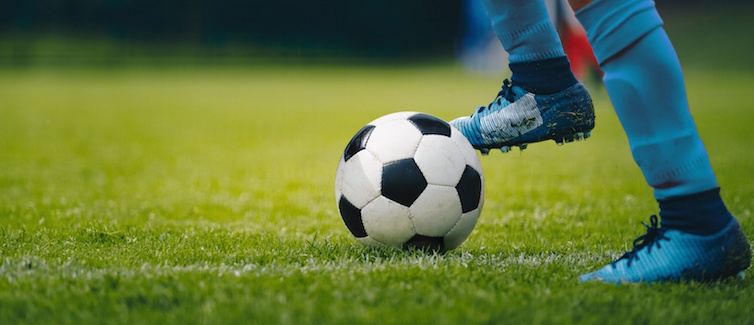After a pickup basketball game, you notice that your lower abs are especially sore. No big deal, you think. But the next week, it’s slightly painful whenever you twist.
By the following week, you can’t do a simple sit-up without pain in your lower abs and groin.
Does this scenario sound familiar? If you’re nodding your head — and wincing in pain — you might be dealing with a sports hernia.
Never Miss a Beat!
Subscribe to Our HealthBeat Newsletter!
Thank you for subscribing!
You can now select the specific newsletters you'd like to receive.
You are already subscribed.
Subscribe to more newsletters in our email preference center.
Sorry, an error occurred. Please try again later.
Get Healthy Tips Sent to Your Phone!
Is a Sports Hernia Actually a Thing?
Not exactly, because it’s not a hernia. Sports hernia is the term patients often use so doctors may call it that — but the medical term is athletic pubalgia. Simply referring to it as a core muscle injury is also quite common.
Unlike a true hernia, a sports hernia doesn’t create a visible bulge. It’s actually an injury to your core muscles. All that twisting and zig-zagging you do on the court, the field, or the ice? That’s one of the leading causes.
Planting your feet and then twisting quickly can cause a tear in the soft tissue around your groin. And when that happens, there’s pain.
Athletic pubalgia is a tricky injury, because the pain often goes away when you rest. But as soon as you’re active, it comes right back. Twisting your torso or contracting your lower abs can be especially painful.
What Should I Do If I Have a Sports Hernia?
You have a few options when it comes to treatment.
If you suspect you have a sports hernia, you can try resting for 7 to 10 days. Apply ice to the places in your lower abs or groin that hurt. Avoid exercises and movements that trigger the pain.
For some people, that may be enough. But you may have a tear. This is why it’s a good idea to see an orthopaedic doctor who specializes in sports medicine.
Sports medicine doctors see the same athletic injuries over and over again. (And don’t forget, they’re often athletes themselves — with personal experience with common injuries.) They can check you out and prescribe a treatment plan that helps you get back to your sport.
How Do Doctors Treat Athletic Pubalgia?
Your doctor may prescribe one or more of these treatments:
- Rest, along with ice, to reduce swelling.
- Nonsteroidal anti-inflammatory drugs (NSAIDs), such as ibuprofen or naproxen, to reduce swelling and pain. Your doctor may suggest over-the-counter NSAIDs or prescribe a stronger one.
- An injection of cortisone, a steroid that brings down inflammation and reduces pain.
- A regimen of physical therapy to help you strengthen your core muscles.
If none of these treatments work, your doctor may suggest surgery. There are minimally invasive techniques to treat a sports hernia. Ask your doctor if you are a candidate.
Will I Recover From a Sports Hernia?
If you have surgery, you’ll need to do physical therapy and rehab. You should be able to get back to a regular exercise routine 6 to 12 weeks after surgery. That’s a big range, but each person’s recovery is different.
Surgery and recovery outcomes are generally strong, according to the American Academy of Orthopaedic Surgeons. They report that more than 90% of people who have nonsurgical treatment, followed by surgery, are able to return to sports.
A sports hernia can be both painful and frustrating. No athlete wants to take a break. But if you get the treatment you need, chances are you won’t be sidelined for long.
With specialists in each type of orthopaedic injury and condition, UPMC Orthopaedic Care has the experts to cater to your specific needs. Visit the Hip Preservation Program website to learn about treatment of both mild and severe hip-related problems, including sports hernia.
About UPMC Orthopaedic Care
When you are dealing with bone, muscle, or joint pain, it can affect your daily life. UPMC Orthopaedic Care can help. As a national leader in advanced orthopaedic care, we diagnose and treat a full range of musculoskeletal disorders, from the acute and chronic to the common and complex. We provide access to UPMC’s vast network of support services for both surgical and nonsurgical treatments and a full continuum of care. Our multidisciplinary team of experts will work with you to develop the treatment plan that works best for you. Our care team uses the most innovative tools and techniques to provide better outcomes. We also are leaders in research and clinical trials, striving to find better ways to provide our patients care. With locations throughout our communities, you can find a provider near you.
